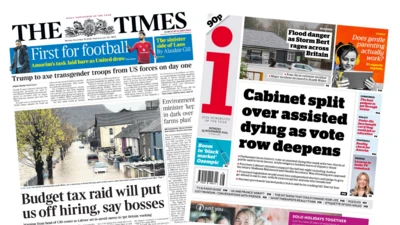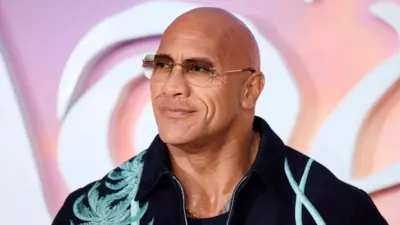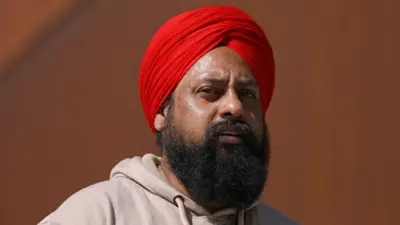We've updated our Privacy and Cookies Policy
We've made some important changes to our Privacy and Cookies Policy and we want you to know what this means for you and your data.
Thousands of tattooed inmates pictured in El Salvador mega-prison
The first group of 2,000 suspected gang members in El Salvador have been moved to a huge new prison, the centrepiece of President Nayib Bukele's self-declared war on crime.
Tens of thousands of suspected gangsters have been rounded up in the country under a state of emergency following a spike in murders and other violent crime.
Image source, Reuters
The jail will eventually hold more than 40,000 people.
Pictures show the first massive group of inmates - tattooed and barefoot - being led to the facility in shackles.
Image source, Reuters
Image source, Reuters
The prisoners are left sitting on the floor with their hands behind their shaven heads, stacked closely together, before being taken to their cells.
Image source, Reuters
President Bukele tweeted that the first 2,000 people were transferred "at dawn, in a single operation" to the Center for the Confinement of Terrorism, which he says is the largest jail in the Americas.
"This will be their new house, where they will live for decades, all mixed, unable to do any further harm to the population."
Image source, Reuters
Image source, Reuters
Image source, Reuters
The mega-prison - in Tecoluca, 74 kilometers (46 miles) southeast of the capital San Salvador - comprises eight buildings. Each has 32 cells of about 100 square meters (1,075 square feet) to hold "more than 100" prisoners, the government says.
The cells only have two sinks and two toilets each.
Image source, Reuters
Image source, Reuters
Image source, Reuters
President Bukele declared a "war on gangs" last March, passing emergency measures which have been extended several times.
The emergency powers have been controversial as they limit some constitutional rights, such as allowing the security forces to arrest suspects without a warrant.
Image source, Reuters
Image source, Reuters
More than 64,000 suspects have been arrested in the anti-crime drive.
Authorities have said criminal gangs such as MS-13 and Barrio-18 number tens of thousands and are responsible for homicides, extortion and drug-trafficking. The aim of the mass arrests is to make the gangs "disappear altogether", the government says.
Human rights organisations have argued that innocent people have been caught up in the policy, and some of those held have reported being subjected to "cruel, inhuman, or degrading treatment".
But Bukele's anti-gang push remains popular with Salvadorans.
Top Stories
More to explore
Most read
Content is not available








